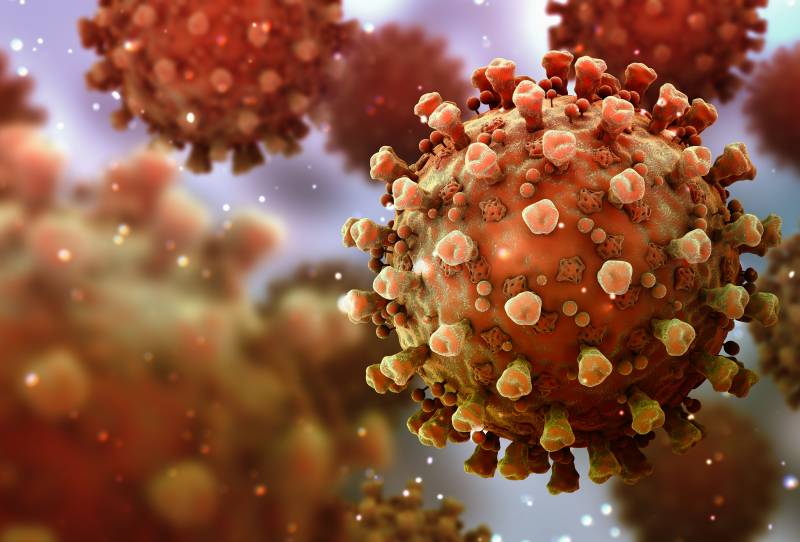Recently, the Cracking the Code team — researchers from Texas Tech and media professionals from KQED — published our report on public understanding of germs (viruses and bacteria). Among other findings, this study highlighted that younger audiences — Generation Z and millennials — are more likely to hold misperceptions about viruses and bacteria, or “germs.” Why are we interested in people’s understanding of germs? We are concerned about public rejection of CDC guidelines for preventing (or at least slowing) transmission of the coronavirus SARS-CoV-2 and its associated disease (COVID-19), such as masking and vaccination. And, in some cases, less knowledge predicts this kind of rejection.
The “Knowledge Deficit Hypothesis” is a theory in science communication that presumes that lack of domain-specific, or even general science, knowledge is to blame for public rejection of science and science-based policy recommendations.
However, the link between knowledge and acceptance often exists only for groups for which the information does not conflict with their identities and/or cultural values. Take evolution, for example: the link between knowledge and acceptance exists for all but the most religious individuals, whose belief system includes the idea that humans were created in their current form (Weisberg et al., 2018). And for climate change, the relationship between knowledge and acceptance breaks down when looking at the data by political ideology. While a strong positive relationship between knowledge and acceptance of anthropogenic climate change exists among liberal Democrats, more science knowledge predicts greater rejection of anthropogenic climate change among conservative Republicans (Kahan, 2017).
Like for climate change, information surrounding COVID-19 is highly polarized along political party lines. Would greater knowledge about science or about germs (viruses and bacteria) predict agreement with the recommendations from the CDC to slow the transmission of COVID-19?
Using our data collected from the first germ knowledge survey, we created two questionnaires related to germ knowledge: (1) a general understanding that some exposure to germs is normal and can even be a good thing (i.e., the germ knowledge questionnaire) and (2) the belief that germs have human characteristics such as sentience and agency (i.e., the germ anthropomorphism questionnaire).
In a second survey, we validated these two dimensions of germ knowledge and examined their relationships with other participant characteristics the Cracking the Code team have been using in our NSF-funded research: the science curiosity scale (Kahan et al., 2017) and the ordinary science intelligence scale (Kahan, 2017).
The results from this second survey are available in the attached slide deck, but here are the main takeaways.
- Having more knowledge about germs is related to having greater ordinary science intelligence scores. Anthropomorphizing germs is related to greater science curiosity scores, but lower ordinary science intelligence scores.
- Like with our first survey, we find that younger audiences (Generation Z and Millennials) know less about germs than older audiences and are more likely to anthropomorphize them.
- When people who vote Democrat have more knowledge about germs, they are also more likely to agree with CDC guidelines that masking prevents transmission of COVID-19 and they are more likely to intend to get vaccinated. However, this is not true of Republicans.
What does this mean for the media? Media organizations could help increase young adults’ understanding of germs through the creation and dissemination of explainers that target some of the key misunderstandings among this audience. By helping increase understanding, media organizations may be helping to increase the public’s compliance with evidence-based COVID-19 mitigation strategies, at least among those who vote Democrat.
Indeed, different audiences respond differently to the same information. This is why the knowledge deficit hypothesis is not fully accurate. While providing explainers to help young adults better understand germs may increase compliance among liberal, Democratic-voting audiences, this strategy is not likely to work for more conservative, Republican-voting ones.
Our prior research also has provided support for strategies for reaching Millennial and Generation Z audiences, particularly using visuals. We found that explainers using GIFs were the most engaging on social media (compared to a short video or a simple image). Furthermore, infographics can help convey complex information and provide explanations of how or why a strategy works (which appears to be more persuasive than emphasizing the strategy is supported by scientific consensus).
References
Kahan, D. M., (2017). ‘Ordinary Science Intelligence’: a science-comprehension measure for study of risk and science communication, with notes on evolution and climate change. Journal of Risk Research, 20(8), 995-1016.
Kahan, D. M., Landrum, A. R., Carpenter, K., Helft, L., & Jamieson, K, H. (2017). Science Curiosity and Political Information Processing. Advances in Political Psychology, 38(S1), 179-199. https://doi.org/10.1111/popfs.12396
Weisberg, D. S., Landrum, A. R., Metz, S. E., Weisberg, M. (2018). No Missing Link: Knowledge predicts acceptance of evolution in the United States. BioScience, 68(3), 212-222. https://doi.org/10.1093/biosci/bix161

